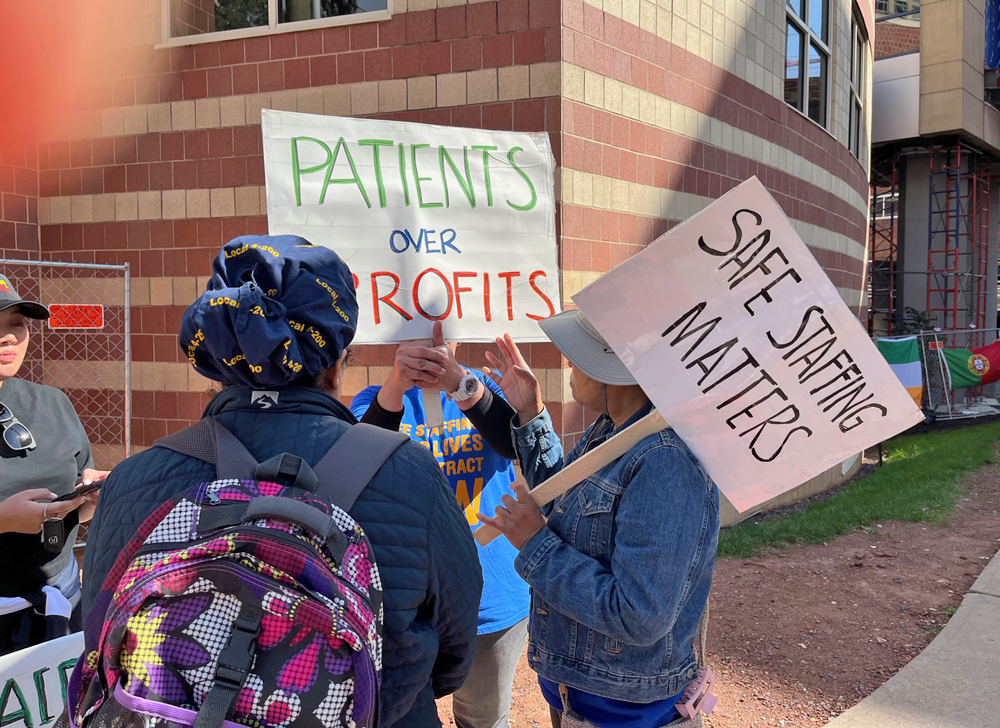Nurses at RWJBarnabas Hospital in New Brunswick, NJ—members of USW Local 4-200—have been on strike for more than 13 weeks. Despite this long duration, they are holding strong, with many nurses picketing every day. They are proud of their unity and strength.
Long strikes provide workers with the occasion to think and talk about many topics. When I visited the picket lines a few days ago (day 104 of the strike), I asked a number of groups of four to seven nurses who were holding signs and talking with each other whether the people who worked at hospitals should run them. No one in any of the five groups disagreed. Their responses showed that they have been thinking about this and how to change the health care system in the United States as it gets worse and worse every year.
One part of the problem, as they have told me on previous visits, is that health care jobs are deteriorating. For nurses and other staff, the decline takes the form of understaffing, which puts patients’ lives in danger, forces the nurses and other hospital workers to make morally-wrenching choices about whom to help and whom to make wait, and results in much stress, exhaustion, and overwork.
In addition, hospitals are closing or being bought out. Nurses are leaving the profession in large numbers, provoking management claims that hiring replacements is hard. (In spite of this protestation, the hospital is employing a large number of “traveling nurses” to scab on the 1,700 striking nurses.)

Nurses in several of the groups I talked with said that the hospital had been a much better place before Barnabas took over the former RWJ Hospital. The previous hospital board, they said, had been made up of doctors, nurses, and community representatives. Now, it is people who care only for the bottom line.
At one of the groups I talked with, a picket captain agreed that having health care workers and the community make decisions about hospital operations was a good idea, but that it was a question of power. Hospital management was able to resist change effectively. Her example was that when the union went to city councils for resolutions of support, the politicians turned them down. And the governor of New Jersey Phil Murphy (D) has refused to support legislation to require adequate staffing in hospitals.
In two other groups, after I asked about hospital workers’ running hospitals, there was general agreement that this was a good idea. The conversation focused on money and how the people who ran this ostensibly nonprofit hospital made a lot of money out of it. One nurse talked about side deals through which money went to managers; another talked about management salaries of $10 million a year and more.
Meanwhile, the union has enlarged the community coalition supporting the strike. It also has begun actively to reach out to other nurses in the state to discuss how their unions can work together and how nurses who do not have unions can organize.
Featured image credit: Wikimedia Commons; modified by Tempest.

